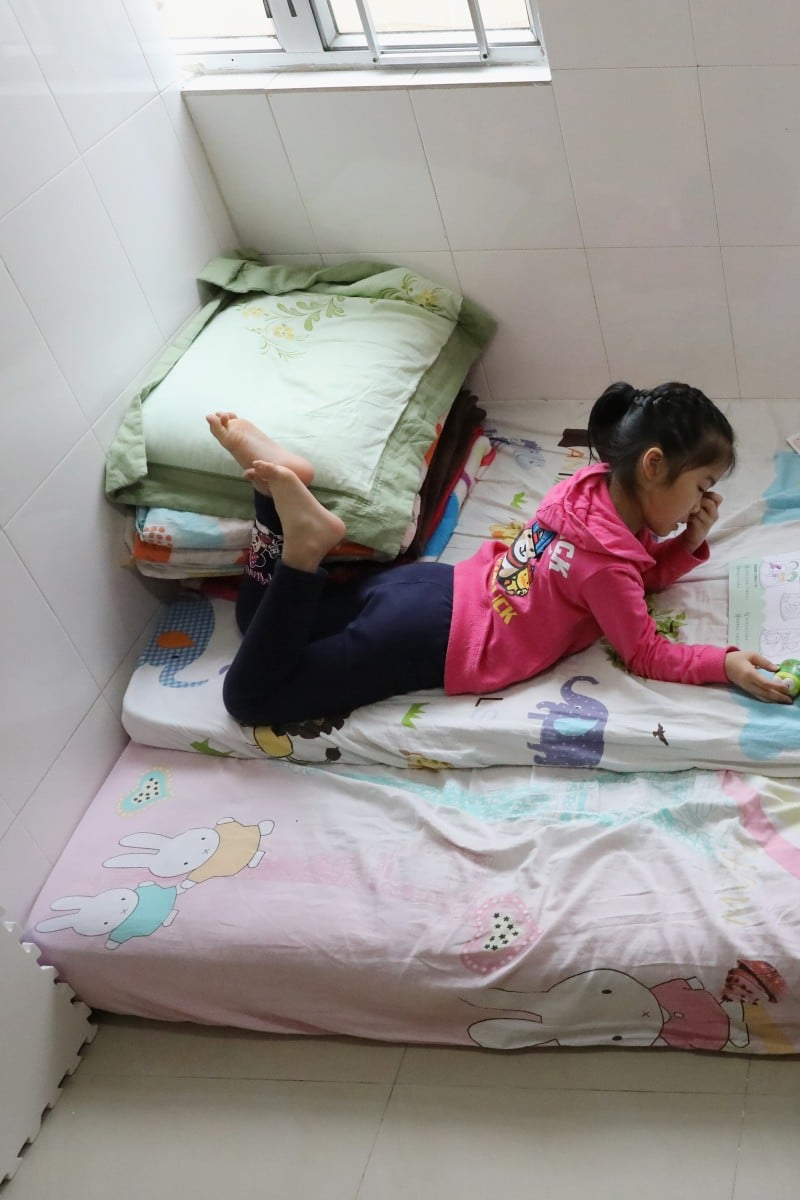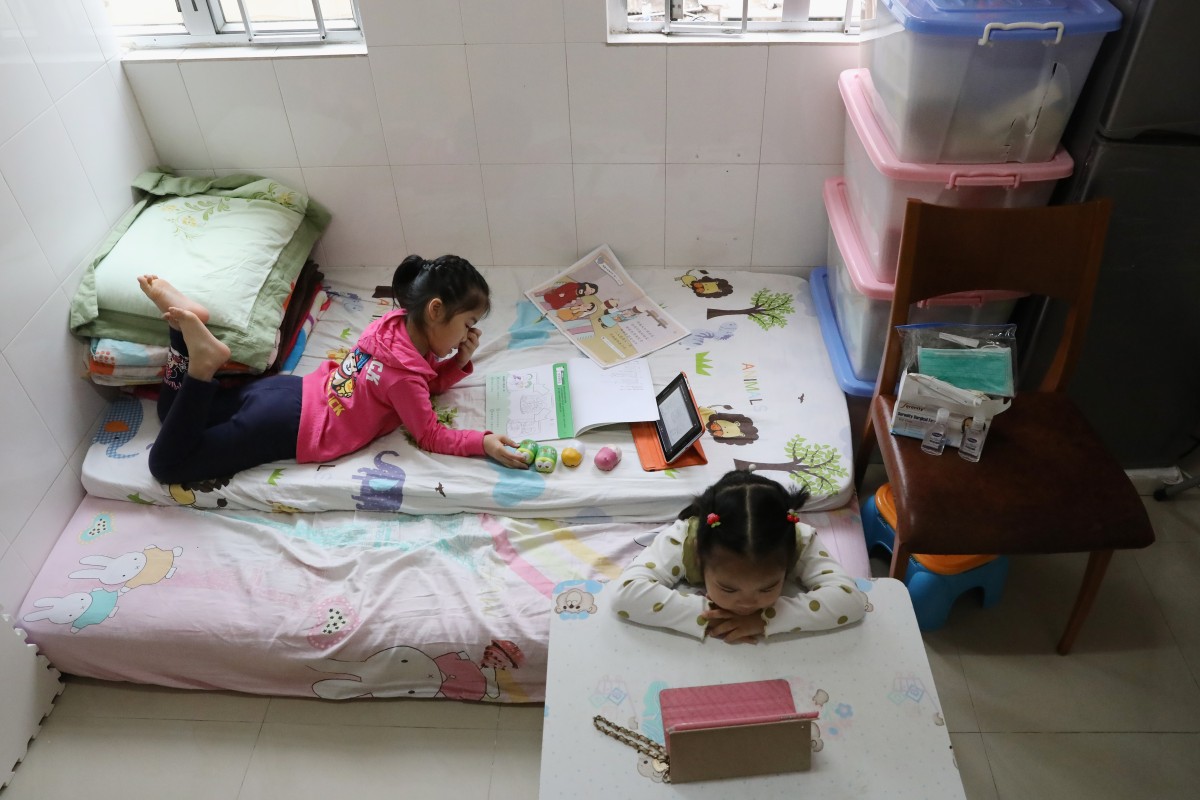
Subdivided flats problem HK: Some bed spaces are only 18 sq ft – but cost more to rent than the same space in a private flat
- Some living quarters in subdivided flats are more than twice as expensive per square foot than larger apartments
- Society for Community Organisation conducted a survey of 439 low-income households and found worrying trends in the price of rent for small spaces
 Subdivided flats in Hong Kong can be incredibly small.
Subdivided flats in Hong Kong can be incredibly small.The Hong Kong government needs to regulate low-income rental housing agreements and build more public flats, a social group says.
In a survey of 439 households, the Society for Community Organisation (SoCO) found that 18 sq ft bed spaces were more than twice as expensive per square foot than 160 sq ft flats in Hong Kong.
The group pointed out landlords hold all the power because of the lack of supervision and the shortage of public housing, forcing people to pay more money to rent a home.
Some of Hong Kong’s poor finally feel at home in 290 sq ft modules
“As a developed society, it is quite unreasonable that we do not have rent controls,” SoCO community organiser Sze Lai-shan said. “This means landlords can choose to raise rents to any amount or kick their tenants out at any time, and we receive reports [of that] almost every week.”
SoCO compared rent rates from September last year to those of August this year, and found that the price per square foot of an 18 sq ft bed space had increased 15 per cent, from about HK$92 to HK$106, over the past year. By contrast, a 135 sq ft subdivided flat only saw a 50-cent rise in rent, while a flat between 100 and 159.9 sq ft in a private building registered a HK$2.90 increase per square foot.
Society for Community Organization (SoCO) releases their latest report on rent control and subdivided flats. (Photo: SCMP)
Almost half of those who took part in the survey reported their landlords had raised their rent within the past three years.
“My landlord suddenly demanded a HK$1,000 increase in my rent,” said a woman surnamed Wong. “I already do not have a steady income and my family has been eating less so we can pay the rent.”
The survey also noted the environment of these subdivided flats, cubicle flats and cage homes “do not meet the requirement of being suitable for habitation”, pointing to the small spaces, lack of basic hygiene and cooking facilities, and rat and tick problems.
Staff writer and Wong Tsui-kai
